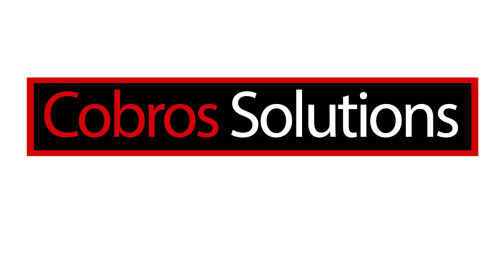Best Lawsuits & Disputes Lawyers in Bonao
Share your needs with us, get contacted by law firms.
Free. Takes 2 min.
List of the best lawyers in Bonao, Dominican Republic
About Lawsuits & Disputes Law in Bonao, Dominican Republic
Bonao is the capital of the Monseñor Nouel province and is served by the Dominican Republics civil law court system. Lawsuits and disputes typically arise in areas such as contracts and commerce, real estate and land registration, labor and employment, family and inheritance, consumer protection, and civil liability for damages. Proceedings are governed mainly by written rules and filings, with court hearings that focus on the judges review of documents and targeted testimony. Local courts in Bonao handle first instance matters and urgent protective measures, while appeals go to the regional Court of Appeal and ultimately to the Supreme Court for cassation review. Alternative dispute resolution is also available, including mediation and arbitration through chambers of commerce and private centers.
Because the Dominican Republic follows a civil law tradition, procedure can feel formal and document driven to those from common law jurisdictions. Service of process is typically completed through court bailiffs, evidence is largely written, and precautionary measures to secure assets before judgment are common where urgency is shown.
Why You May Need a Lawyer
You may need a lawyer in Bonao for any of the following common situations:
- Contract disputes such as unpaid invoices, breached supply agreements, franchise or distribution conflicts, or construction defects.
- Real estate and land matters, including title conflicts, boundary disputes, easements, eviction, opposition to liens, and challenges before the land jurisdiction.
- Labor and employment issues such as dismissals, severance calculations, wage claims, nonpayment of benefits, and workplace accidents.
- Consumer disputes involving defective products, unfair terms, or nonperformance by service providers.
- Family and inheritance matters including divorce, child support, probate, partition of estates, and guardianship issues.
- Civil liability claims due to traffic accidents, professional negligence, or property damage.
- Urgent measures to prevent harm or secure assets, for example a request for a preliminary injunction or a conservatory seizure.
- Enforcement or recognition of foreign judgments or arbitral awards, especially where international parties or assets are involved.
- Negotiation and settlement, where a lawyer can help evaluate risk, quantify damages, and draft enforceable agreements.
Local Laws Overview
- Court structure: Bonao hosts courts of first instance for civil and commercial matters, peace courts for lower value or minor disputes, and labor courts for employment disputes. Appeals go to a regional Court of Appeal. The Supreme Court hears cassation appeals on points of law. Constitutional issues can be reviewed by the Constitutional Tribunal through specific processes such as amparo.
- Governing codes: Civil disputes generally follow the Civil Code and the Code of Civil Procedure. Commercial disputes apply the Commercial Code and special commercial statutes. Labor disputes follow the Labor Code. Real estate and title issues are handled in the land jurisdiction, which has its own procedural rules and registries.
- Procedure and timelines: Cases often begin with a demand letter served by a bailiff, followed by a formal filing. Hearings focus on written submissions, exhibits, and targeted witness or expert testimony. Dominican procedure allows summary proceedings for urgent matters, and precautionary measures can secure assets or evidence. Deadlines to sue and to appeal are strict, and missing them can end a case. Exact limitation periods vary by claim type, so prompt legal advice is critical.
- Evidence and documents: Written evidence is central. Notarized documents, certified copies, bailiff reports, and expert opinions carry significant weight. Foreign documents may need an apostille or consular legalization and a sworn Spanish translation.
- Costs and fees: Parties pay court fees, bailiff costs, expert fees, and attorneys fees. The court may order the losing party to pay costs, but this usually does not fully reimburse legal fees. Budget planning early in the case is important.
- Alternative dispute resolution: Mediation and arbitration are recognized. Commercial arbitration is available under Dominican law, and arbitral awards can be enforced by Dominican courts subject to legal requirements. Settlements can be formalized to make them enforceable.
- Enforcement and foreign decisions: Dominican courts can enforce local judgments through measures like garnishment and seizure. Foreign judgments and arbitral awards may be recognized through a judicial process that verifies jurisdiction, due process, and public policy compatibility before enforcement.
Frequently Asked Questions
What courts in Bonao handle civil and commercial disputes?
The Court of First Instance of the Judicial District of Monseñor Nouel in Bonao handles most civil and commercial cases. Peace courts handle lower value disputes. Labor cases go to specialized labor courts. Appeals go to the regional Court of Appeal.
How do I start a lawsuit in Bonao?
Most cases start with a formal demand served by a court bailiff, followed by filing a complaint with the competent court. Your lawyer drafts the claim, gathers evidence, pays filing fees, and requests a hearing date.
How long does a case take?
Timelines vary by complexity, court workload, and whether urgent measures or expert reports are involved. Simple matters may resolve in months, while complex or appealed cases can take longer. Early settlement or mediation can shorten the timeline.
Can I get urgent protection while the case is pending?
Yes. Dominican procedure allows urgent summary proceedings and precautionary measures to prevent irreparable harm, preserve evidence, or secure assets, subject to legal standards and judicial discretion.
Do I need to attend hearings in person?
Often your lawyer can appear for procedural steps. For testimony, cross examination, or settlement conferences, your presence may be required or advisable. Confirm with your counsel and the court.
What evidence is most persuasive?
Signed contracts, invoices, payment records, certified corporate documents, bailiff reports, expert opinions, and official registry certificates are influential. Witness statements can help but carry more weight when supported by documents.
How are legal fees structured?
Lawyers commonly use hourly rates, flat fees for defined tasks, or a hybrid. Success fees may be used in some civil matters subject to ethical rules. Get a written fee agreement and ask about court costs and expert fees.
What if one party is foreign or documents are in another language?
Foreign documents may need apostille or legalization and sworn translation into Spanish. Private international law rules determine jurisdiction, applicable law, and recognition of foreign judgments. Engage counsel experienced in cross border disputes.
Is arbitration an option for business disputes?
Yes. If your contract has an arbitration clause or if the parties agree later, commercial arbitration is available in the Dominican Republic. Awards can be enforced in Dominican courts if legal conditions are met.
What are typical deadlines to bring a claim?
Limitation periods differ widely by claim type. Some labor and consumer claims have short windows, while others may allow several years. Because deadlines are strictly enforced, consult a lawyer quickly to identify the applicable term.
Additional Resources
- Palacio de Justicia de Bonao and the Court of First Instance of Monseñor Nouel for filing civil, commercial, and family matters.
- Juzgado de Paz de Bonao for lower value civil disputes and certain neighborhood or minor matters.
- Labor Courts in the Judicial District for employment claims such as dismissals, severance, and wage disputes.
- Jurisdiction on Land Matters including local Title Registry and land courts for title, boundaries, and liens.
- Cámara de Comercio y Producción de Monseñor Nouel for business registrations and guidance on commercial dispute resolution or available ADR services.
- Pro Consumidor, the national consumer protection authority, for complaints and mediation in consumer disputes.
- Ministerio de Trabajo local office for labor conciliation services and guidance on workplace disputes.
- Procuraduría General de la República and local Ministerio Público offices for criminal complaints tied to fraud or related issues.
- Defensor del Pueblo, the Ombudsman, for assistance with administrative grievances affecting fundamental rights.
- Colegio de Abogados de la República Dominicana for information on licensed attorneys and professional guidance.
Next Steps
- Preserve evidence: Collect contracts, emails, messages, invoices, receipts, photos, and any prior notices or demand letters. Keep originals safe and make copies.
- Note deadlines: Write down key dates such as delivery dates, breach dates, termination notices, and payment due dates. Ask a lawyer to confirm limitation periods and appeal deadlines.
- Get a case assessment: Schedule a consultation with a Bonao based attorney who handles your type of dispute. Request a preliminary strategy, risk analysis, and budget estimate.
- Consider early resolution: Ask about mediation or a without prejudice settlement meeting to save time and costs where appropriate.
- Prepare documents for court: Ensure foreign documents are apostilled or legalized and translated into Spanish by a sworn translator if needed.
- Plan for costs: Discuss fees, court expenses, expert costs, and potential cost recovery. Get a written fee agreement that outlines scope and billing.
- Follow procedural advice: Service of process and filings must follow local rules. Use court bailiffs and comply with hearing schedules to avoid delays or dismissals.
- Protect assets and rights: If there is urgency, ask your lawyer about precautionary measures or summary proceedings to prevent further harm.
- Stay informed: Request regular updates, review draft submissions, and keep lines of communication open with your attorney.
This guide is for general information only. For advice about your situation in Bonao, consult a licensed Dominican attorney.
Lawzana helps you find the best lawyers and law firms in Bonao through a curated and pre-screened list of qualified legal professionals. Our platform offers rankings and detailed profiles of attorneys and law firms, allowing you to compare based on practice areas, including Lawsuits & Disputes, experience, and client feedback.
Each profile includes a description of the firm's areas of practice, client reviews, team members and partners, year of establishment, spoken languages, office locations, contact information, social media presence, and any published articles or resources. Most firms on our platform speak English and are experienced in both local and international legal matters.
Get a quote from top-rated law firms in Bonao, Dominican Republic — quickly, securely, and without unnecessary hassle.
Disclaimer:
The information provided on this page is for general informational purposes only and does not constitute legal advice. While we strive to ensure the accuracy and relevance of the content, legal information may change over time, and interpretations of the law can vary. You should always consult with a qualified legal professional for advice specific to your situation.
We disclaim all liability for actions taken or not taken based on the content of this page. If you believe any information is incorrect or outdated, please contact us, and we will review and update it where appropriate.
Browse lawsuits & disputes law firms by service in Bonao, Dominican Republic
Bonao, Dominican Republic Attorneys in related practice areas.









